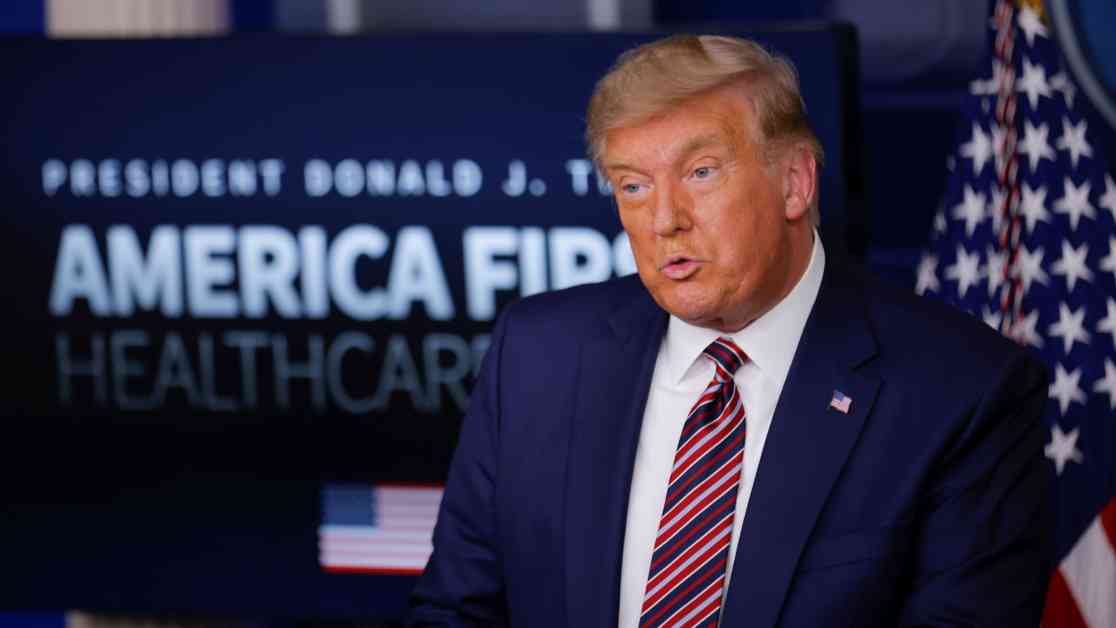Title: The Future of Pharma in a Trump Administration
In the wake of President Donald Trump’s re-election, the pharmaceutical industry is abuzz with anticipation and uncertainty. A key shift from the previous administration’s approach to drug pricing and healthcare policy is expected, sparking a wave of hope and apprehension within the sector.
Hopeful Outlook Among Drugmakers
At a recent industry gathering, the JPMorgan Health Care Conference in San Francisco, top pharmaceutical and biotech executives discussed their expectations for the coming year under a Trump administration. Amidst the discussions, a prevailing sentiment emerged – a sense of cautious optimism. Despite Trump’s past rhetoric targeting high drug costs and the industry as a whole, executives expressed readiness to engage and collaborate with the new administration.
Albert Bourla, CEO of Pfizer, encapsulated this sentiment, acknowledging both risks and opportunities in the evolving landscape. “What we do as an industry, and as Pfizer, is engage with the new administration,” Bourla remarked, highlighting the importance of constructive dialogue and mutual understanding in navigating potential policy changes.
Pharmacy Benefit Manager Reform
One of the key areas of focus for drugmakers is reforming pharmacy benefit managers (PBMs), the middlemen accused of inflating drug prices and hindering patient access to affordable medication. Industry leaders are optimistic about the prospects for PBM reform under the Trump administration, citing bipartisan support and growing momentum for legislative action.
Stephen Ubl, CEO of the Pharmaceutical Research and Manufacturers of America, emphasized the need for transparency and accountability in PBM practices. The industry’s push for reforms includes breaking the link between drug prices and PBM compensation, ensuring that rebates benefit patients directly, and increasing transparency around pricing strategies.
Challenges in Medicare Drug Price Negotiations
Another pressing issue facing the pharmaceutical industry is the revision of the Inflation Reduction Act (IRA), which allows Medicare to negotiate drug prices with manufacturers. While Trump’s potential approach to this policy remains uncertain, health policy experts believe that efforts to lower drug prices will likely continue, given the bipartisan consensus on the issue.
PhRMA’s Ubl highlighted concerns over the IRA’s impact on drug innovation and patient access, particularly with regards to small-molecule drugs. The industry argues that the current law discourages investment in new treatments and could result in fewer options for patients, especially in the realm of generic medications.
The RFK Jr. Conundrum
A wildcard in the pharmaceutical landscape is the potential influence of Robert F. Kennedy Jr., a controversial figure with a history of anti-vaccine rhetoric. Despite concerns about his views on vaccination, industry leaders like Pfizer’s Bourla see room for collaboration on broader health initiatives, such as cancer research and chronic disease management.
Kennedy’s appointment to lead the Department of Health and Human Services raises questions about the administration’s stance on vaccination policies and public health priorities. While his anti-vaccine views may clash with industry values, there is a glimmer of hope for alignment on other health-related issues.
Looking Ahead
As the pharmaceutical industry braces for a new era under a Trump administration, challenges and opportunities abound. From PBM reform to Medicare negotiations and the specter of anti-vaccine sentiment, the road ahead is paved with uncertainty. Yet, amidst the complexities of policy and politics, there lies a common goal – to improve patient outcomes, advance medical innovation, and foster a healthier future for all Americans.



















